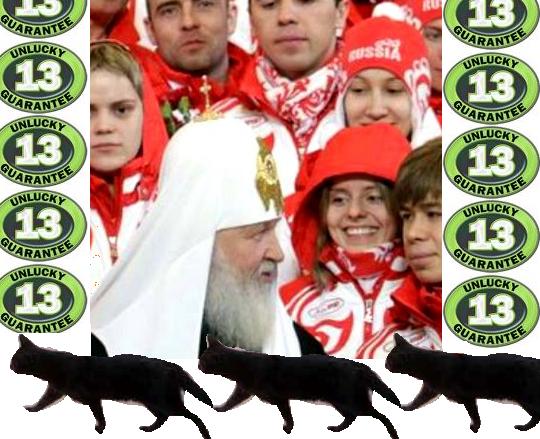
Once the foreigners who dared to push Russia from the podium have been taken care of (via strategic bombers and lethal psychological warfare), heads will roll over the country’s worst Olympics in history, assured Medvedev yesterday.
But whose?
Well, sports minister Vitaly Mutko says it wasn’t his fault; it was the stoopid new sports, dastardly doping tests, and God’s hatred of Russians. Seriously.
In an interview, Mutko unbelievably declared that:
1. New sports such as freestyle skiing that “no one takes seriously” in Russia have allowed other countries to race ahead
2. Luck was not on the country’s side; and that
3. Doping bans had also deprived Russia of several leading medal contenders.
Some have called for the blood of Leonid Tyagachev, the head of Russia’s Olympic Committee. Others have demanded the resignation of Patriarch Kiril instead: a joke points out that Tyagachev brought back decent-enough medal hauls from Salt Lake and Turin, until the Patriarch took the unprecedented step of blessing the athletes.
Yet the recrimination over Vancouver is the least of Russia’s problems.
In today’s Christian Science Monitor, Fred Weir describes the utterly shambolic state of preparations for Sochi 2014.
Indeed, while Russia’s sports may have lost their world-beating Soviet training style, its politics remain firmly wedded to the USSR’s heroic, ‘at any price’ prestige projects.
Without fail, the Sochi games have been hobbled by unprecedented corruption, enormous environmental degradation, widespread restrictions on press freedom, an opposition campaign from the Georgians and looming threats from the separatist Caucasus region next door. Oh, and did I mention the city’s subtropical climate – a less-than-perfect fit for winter games?
But what are such trifles when Putin’s personal reputation is on the line?